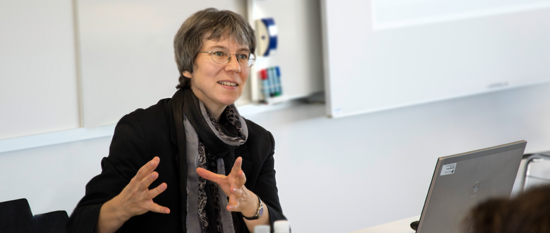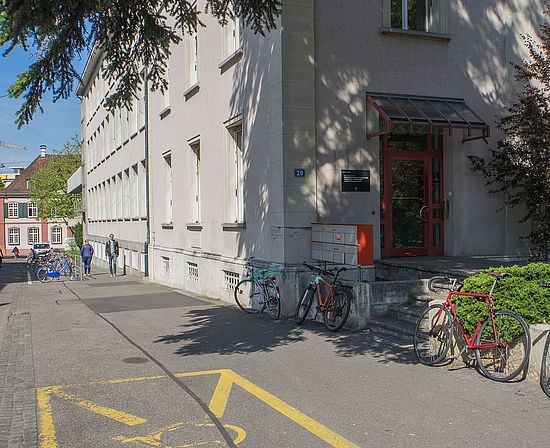
Studying at the IBMBAn interdisciplinary program for all levels of education
At the IBMB, doctoral degrees in Bioethics (Faculty of Science) and Biomedical Ethics (Medical Faculty) can be obtained as part of our PhD program. We offer several courses each semester tailored to the needs of our doctoral students and other interested individuals, such as research methodology courses in empirical ethics.
Additionally, students from all disciplines have the opportunity to earn a Certificate in Applied Ethics and participate in many courses that are taught as part of these two educational programs.
Contemporary Issues in Bioethics
A variety of courses are also open to the public, including the twice-yearly “Contemporary Issues in Bioethics” lecture series that integrates a lively dialogue with visiting speakers.
The Transdisciplinary Program Applied Ethics
Students from all faculties can acquire a certificate of applied ethics. The course is primarily offered in the open credit point range of Bachelor's and Master's degree programs.
The PhD Program
Our PhD program aims to contribute towards shaping a future generation of (bio)ethicists who will be highly efficient and reliable in providing expert advice on the unavoidable and manifold ethical issues that arise with advances in medicine, the life sciences and society.
With the advancement of medicine and biotechnology and the continuous challenges they keep posing to society, the field of bioethics continues to evolve and grow. There is increasing demands for bioethics expertise in clinical and research ethics committees, in national ethics committees as well as in various health-related organizations in the public and private sectors.
Funding agencies worldwide (e.g. European Commission, Genome Canada, US government funds) routinely require the integration of an ethics component in scientific projects, in order to identify (and, if possible, to prevent or minimize) adverse consequences of biotechnology and to increase the credibility and transparency of biomedical scientific projects. In addition, ethical expertise is becoming a regular requirement for researchers in different scientific areas. Therefore, our graduates can not only opt for an academic career in bioethics, but also contribute their acquired expertise in ethics committees and other ethics related regulatory fields, or even more importantly, in their own scientific or related activities.
Contact

Institute for Biomedical Ethics
Bernoullistrasse 28 - 2nd Floor
4056 Basel
Switzerland
Tel: +41 61 207 17 86


